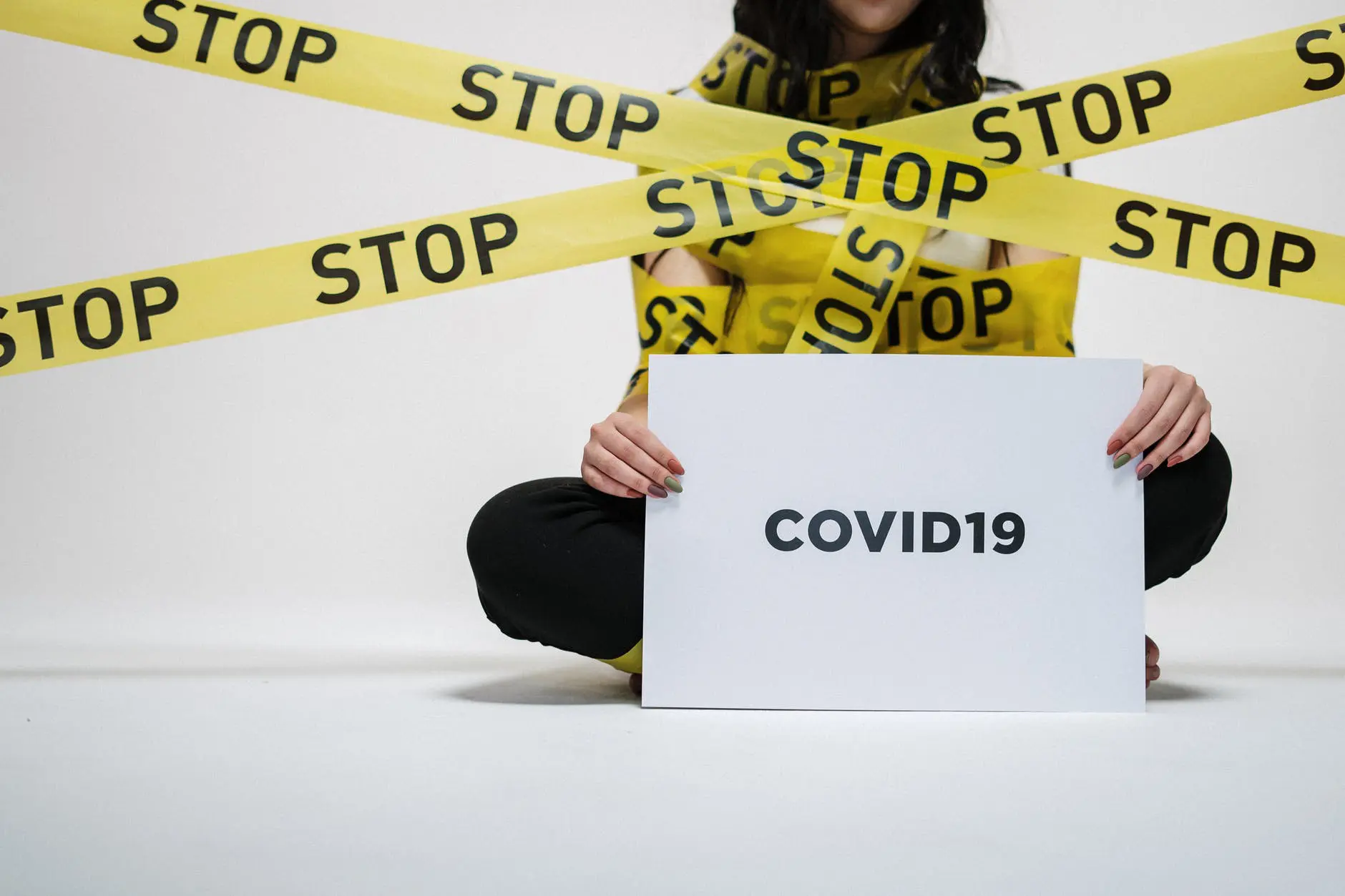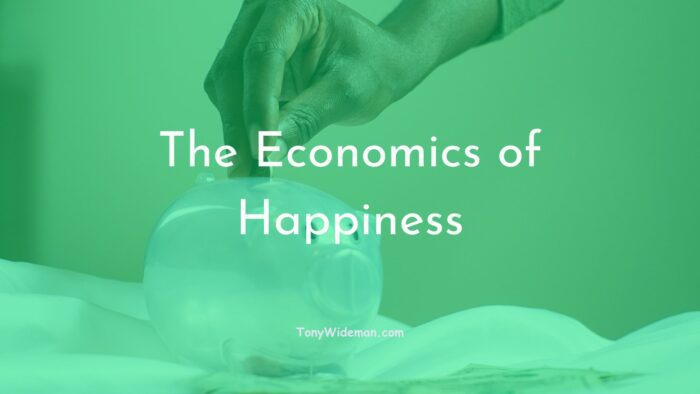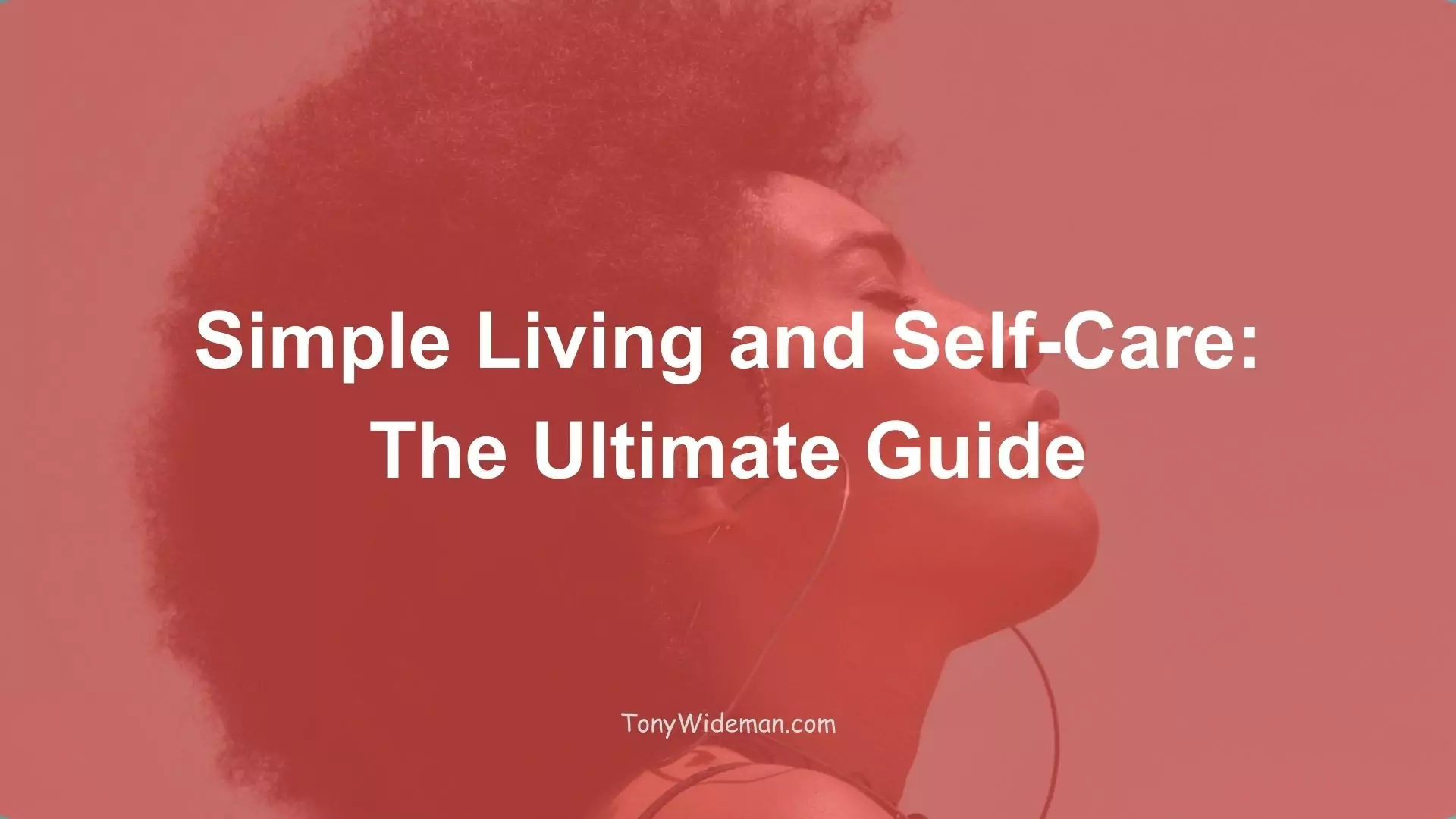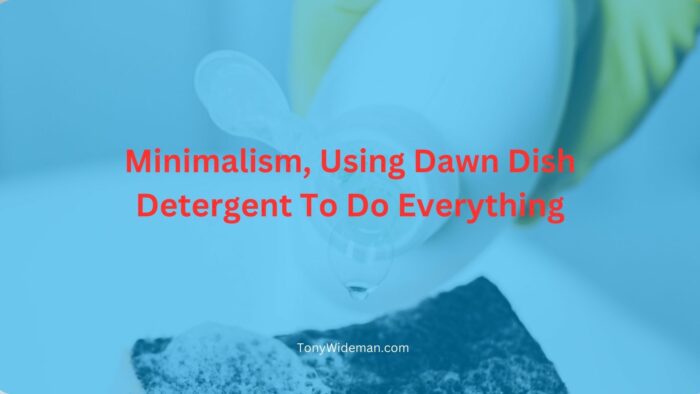Coronavirus Pandemic, Lessons You Should Learn One Way Or Another

Will we learn the lessons the Coronavirus Pandemic is trying to teach us before it’s too late? Ironically all of the similarities that make all…
Will we learn the lessons the Coronavirus Pandemic is trying to teach us before it’s too late? Ironically all of the similarities that make all human beings, human beings are what make all viruses so devastatingly effective. Conversely, those same human similarities are what give us the power to easily defeat most of our challenges if we ever choose to come together and exploit them.
We all need to breathe clean air, drink clean water, consume nutritious food, possess the same physical makeup, and share similar emotions. Why are we not able to defeat this particular Coronavirus?
Without a doubt, we can defeat this virus and put an end to this Coronavirus Pandemic, restore the economy of the world, and restore freedom of movement if we learn a few simple lessons sooner rather than later.
These are the problems we probably will not overcome that will lead to our defeat ;-(
Priorities
The Coronavirus Pandemic could accomplish what thousands of years of Leaders, governments, religions, cultures, and wars have not been able to accomplish.
We should learn from the Coronavirus Pandemic that we are all members of the human race and part of the wonderful fabric of life on this amazing planet.
We may be individuals, parts of separate communities, and even many nations but that should come secondary to being beloved members of the human race.
When death is literally in the air stalking us it becomes brilliantly clear who the real heroes of our societies are. It’s not the celebrities, athletes, or even the filthy rich. Most of them ran and hid in gated communities.
In a society where these people along with corporate executives and hedge fund managers earn exponentially more than the rest of society, the Coronavirus Pandemic taught us who the true pillars of our societies really are.
The everyday workers, warehouse workers, drivers, store clerks, delivery people, doctors, nurses, public health workers, caregivers, and the list goes on.
We should really take a good look at where our priorities as a society should focus. The Coronavirus Pandemic has taught our societies are only as strong as the weakest links in the chains.
Our priorities should be strengthening the weakest links in all matters of our existence.
Culture
The Coronavirus Pandemic crosses every established geological border and every facet of every culture on the planet without restriction. Never favoring or discriminating against anyone.
The Coronavirus Pandemic proves that countries with the most powerful military weapons, the greatest wealth, the most leading-edge technology, and the best education, infrastructure, and religious ideology can be equally affected.
To my surprise, during The Coronavirus Pandemic, I learned my government valued profit over people. They offered Federal Business Stimulus Packages with no requirements to aid in the recovery.
It never even crossed their minds to require businesses seeking aid to contribute to the recovery effort. My government had to turn around and try to coax businesses to retool and manufacture the tools needed to combat the Coronavirus Pandemic.
The United States government had public and private resources readily available to apply to save lives. We could have easily retooled and repurposed factories and infrastructure to serve the common good but did so at a painfully slow pace.
To my surprise, the United States government sought to incentivize businesses with the hopes of earning profits on top of the public funds offered to them to help them through the pandemic.
To add insult to injury instead of the United States government using awesome powers granted by the people to take over and manage the nation’s Coronavirus Pandemic response, it chose to hold Hunger Games-style competitions between the states to even bolster even more profits for private businesses.
This approach will prove to be disastrous for obvious reasons. The Coronavirus Pandemic will teach us about our capitalism, profit at all costs, supply, and demand, and shop till your drop culture.
Will we learn it? Will you learn it?

Humanity
The coronavirus Pandemic has affected many cultures differently. Here in the United States, many complain about not being able to go outside, have fun, or be asked to wear a Face Mask in public. I guess some would call this a first-world problem.
We complain about visiting our favorite restaurant or going to a gym to work out. Many cultures suffer from poor economies, poor existing healthcare systems, and the inability to recover from an economic shutdown.
Although I am focusing on the Coronavirus Pandemic that is threatening life as we know it around the globe, many cultures have been constantly dealing with diseases like Cholera, Dengue Fever, Malaria, and many other illnesses in conjunction with this virus.
The Coronavirus preys on the weak in similar ways as humanity does. The poorer your diet, the less access to proper health care, proper rest, and clean water the more susceptible your immune system is to this virus.
More importantly, the groups of people more likely to work service jobs, use public transportation, live in a more toxic environment by design, or live in more crowded households are also more susceptible to COVID-19.
Humanity allows people to fall through the cracks by design, where children stave, and women are raped and murdered. During the Coronavirus Pandemic, the poor and destitute are treated the worst. Business as usual and the Coronavirus Pandemic just adds to the ongoing tragedies.
The Coronavirus Pandemic will give many a taste of how some people live as it brings the economy and business to their knees.
“There but for the grace of God go I”. As people face the real possibility of uncertainty and face the reality that it can happen to them.
It is happening to you. All of a sudden Welfare Checks are again renamed Stimulus Checks as individuals and businesses hold their hands out by the millions with no end in sight.
They will not be told to pull themselves up by their bootstraps (like people of color are told) or be called lazy, or will they? Humanity can be cold and cruel.
In many cases, the poor and unfortunate are abused physically and mentally by all segments of society the Coronavirus Pandemic may teach us more than we are willing to comfortably learn about humans and humanity.
Health
The Coronavirus Pandemic has pulled the curtain back on the American healthcare system. Despite spending $3.5 trillion in 2017 On healthcare the United States Coronavirus response was dismal at best.
Despite all the money being spent every year millions of people still live in Medically Underserved Areas (MUA) across the US. In the richest country ever to grace the planet the term “Medically Underserved ” is a thing.
How could that be?
Medically Underserved Areas by Design? Why? Can’t be because of the cost. $3.5 trillion is a lot of loot and I do mean the loot. Wink, wink!
“It’s been estimated that the U.S. health care system wastes about $765 billion a year — about a quarter of what’s spent. We’ve identified ways that tens of billions of dollars are being wasted, some of them overlooked even by many experts and academics studying this problem”
Despite the enormous amount of money being spent 1 in 10 Americans has no or for all intent a purpose useless health care coverage.
The Coronavirus Pandemic did not cause the problems but will highlight the inefficiency, fraud, and immoral nature of the for-profit-driven healthcare system favored in the United States today.
A culture where you see police officers outfitted with so much technology they look like extras from the latest Star Wars movie set.
In contrast, Doctors, Nurses, and other healthcare workers reuse facemasks and wrap themselves in garbage bags because of Protective Equipment shortages.
Will we learn the lesson the Coronavirus Pandemic will teach us about healthcare around the world before it’s too late?
Economy
The Coronavirus Pandemic will more openly expose Capitalism as a vicious system that is designed to enable a handful of families to profit on the backs of the masses.
Under the scrutiny of the Coronavirus Pandemic, Capitalism will prove to be inefficient, unsustainable, and morally bankrupt as the poor will undoubtedly need to bail out the elite’s business class again.
The old privatize the profits and socialize the losses SCAM. No one deserves abuse but maybe we deserve what we get for falling for this SCAM over and over again.
In other words, the profitability of corporations are strictly for the benefit of their shareholders. But when the companies fail, the fallout—the losses and recovery—are the responsibility of the general public.
As the Coronavirus Pandemic takes its toll on the masses we quickly are reminded the elite and well-to-do are Capitalists at heart.
They will consider it to be bad business to reinvest in their customers. The very people who drive profits and who will be asked to bail them out time and time again.
Morally bankrupt? The people can bail big businesses out, and invest in them in the morning and in the evening they will complain they do not have the capital to invest, retool, and produce the resources we need to enrich society and combat this Pandemic.
Ironically the resources the masses need to exist comfortably are continually being handed over to businesses and turned into commodities.
What I call the commons (Police, Fire, Health Care, Water, Postal Services, The Court Systems . . .) are being privatized and will never be readily available when the people truly need them without additional fees.
The powers that be are successfully running the United States Postal Service into the ground in order to privatize and profit from it.
In 2006, Congress passed a law to require the USPS to prefund 75 years worth of retiree health benefits in the span of ten years—a cost of approximately $110 billion. Although the money is intended to be set aside for future Post Office retirees, the funds are instead being diverted to help pay down the national debt.
-Peter DeFazio
The USPS has never cost the American public one penny. The Postal Accountability and Enhancement Act of 2006 was designed to destroy the U.S. Postal Service and divert massive amounts of money into private hands. AT ALL COSTS!
The Coronavirus Pandemic did not create greed but it will highlight it. I will teach some people they are underemployed or their employment is not secure and unstable.
What lessons has the Coronavirus Pandemic taught you about the economy?
Consumerism
Everyone that has experienced the Coronavirus Pandemic lockdown was deprived of shopping and periodically scratching that consumerism itch.
No impromptu shopping sprees, no boredom-breaking visits to the malls, no daily coffee, and expensive lunch outings. Did any of us really miss it? What about saving money? Did past consumerism add value to your life?
There are times shopping is used as a form of entertainment but the urgency of the Coronavirus Pandemic was able to sully that online experience for most people.
A friend of mine was looking to get her car repaired at the time all of the auto dealerships were shut down and I could not get auto parts anywhere local. She ended up purchasing the parts from some guy on eBay.
In my naivety, I believed I would receive the parts in a few days. Wrong! I forgot we were on the Pandemic time clock and became happy it only took two weeks.
Will we go back to our old ways of indiscriminate spending? I am only speaking of those who are guilty of indiscriminate spending. Many people had to take a good look at their spending as incomes began to drop and even dry up.
There was the usual cutback on the morning coffee or outside lunch but that is not what I am speaking about.
I am not even speaking about spending when bored, spending on entertainment, or uplifting a bad mood. The indiscriminate spending I am referring to is the automated deduction type.
I was constantly hearing about people looking to cut expenses and found all types of automated deductions occurring from their credit card accounts for years without notice.
The deductions were right there in their statements but they never acknowledged them. Many of them were free trials that turned paid and never ended.
Many were newsletters and services they no longer used but still paid for. The Coronavirus Pandemic shutdown made it almost impossible to spend money on anything but the necessities we survived.
Some of us even saved money and changed our behaviors for the better. What lessons will you learn about consumerism and your finances due to the Coronavirus Pandemic?
Conclusion
We need to treat the Coronavirus Pandemic as if it were an invader from another planet waging war on the human species. Human beings are so arrogant and could never believe we could lose this battle.
Like an invader from another planet, this virus does not care about race, culture, religion, v profession, or how much money you have in the bank. It is in it to win it.
Viruses work together. They don’t screw each other over for a high percentage of the spoils. They have focused purpose and unyielding determination.
Unlike human beings that find the smallest reason to be divided. Human beings are divided on, race, culture, religion, region, wealth, and station in life.
No group could ever hope to defeat such a well-organized and focused opponent as the Coronavirus. Human beings are only as strong as our weakest link.
There would be no fun in being a rich person in a poor country. Where would you go? What would you do? Gated communities or purchasing a private island will not even help you.
As long are there are weak links in our cultures like the poor, exploited, greedy, entitled, and hate for others this virus will always have a place to take hold and prevail.
There will not be a vaccine or cure. Human beings have never cured anything. Until we correct our behaviors and how we behave with EVERY human being on the planet we will always be exposed.
We will learn the lessons the Coronavirus Pandemic will teach us one way or another but will it be too late?







